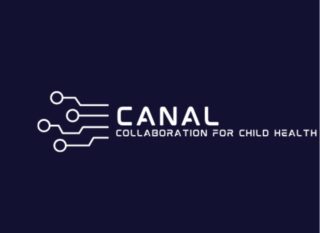Q Exchange
Canal: Children in Charge
- Idea
- 2023

Meet the team
Also:
- Lisa Van Geyzel
- Divya Gurudutt
- Catherine Tyler
- Helen Morris
- Suzanne Cleary
What is the challenge your project is going to address and how does it connect to the theme of 'How can improvement be used to reduce delays accessing health and care services'?
Birmingham and Solihull ICS has the highest proportion of children living in poverty, large ethnic diversity and some of the poorest national outcomes. Canals have been the lifeblood of the city of Birmingham for generations. The Canal Project was started in 2022 to look at collaboration for child health across boundaries and has started forming better links between primary and secondary care. In addition the healthcare landscape has changed with many resources being accessible and promoted before contact with a healthcare professional.
These threads lead back to the CYP and families. In this project we want to take the questions back to source and ask the children how they imagine their health care.
What does your project aim to achieve?
There are 2 main aims..
- Understanding of how CYP of today view their health and how they would like to access help information and support.
- Identifying measures of what CYP perceive to mean ‘good health’
How will the project be delivered?
The project is in essence around coproduction and community engagement. We would like to reach out to CYP in their normal spaces. We would like to see them in schools, ask them on their way back from mosque or on the football pitch. What makes you well? What keeps you well? What makes you happy?
There would be an initial scoping phase to look at established tools and resources followed by a period of engagement with CYP. We would plan to present the findings to key stakeholders and look at refining a model of how we can move forward to approach the health of children in the city.
How is your project going to share learning?
We would sharing the learning in organisational forums, professional specific forums and also through quality improvement networks.
How you can contribute
- Ideas! Evidence! Energy!
- "If I have seen further, it is by standing on the shoulders of giants." – Isaac Newton
- Be the giants we need, team Q
Comments
Mary Salama 26 Mar 2023
After much discussion with Guddi and her amazing team based in London we feel that there are so many overlaps with what the projects hope to achieve. We are therefore delighted to have been added as collaborators on the powering up project.
Really excited about how we can tap into the knowledge and lived experience of young people in two areas with high rates of deprivation to be able to improve access to care and reduce inequalities. #bettertogether
https://q.health.org.uk/idea/2023/powering-up-co-producing-solutions-to-health-inequality-with-young-people/#comments
Gill Phillips 23 Mar 2023
This project has huge potential - well done, Mary Salama and team.
I love the idea of getting CYP to talk about their holistic needs and say what good health means to them rather than just grown ups making assumptions.
As I said in my response to Darren's question, I attended a Colab Partnership webinar hosted by Mary and was blown away by the lateral thinking approach to finding solutions to helping children with complex needs go home sooner when the reasons keeping them in hospital were logistical rather than medical. This is HUMAN (families want to be together at home) ... and of course frees up capacity for others who need care. WIN:WIN
This team will deliver great outcomes and will definitely get one of my votes!
Mary Salama 26 Mar 2023
Thank you Gill for your kind words and energy and enthusiasm. As we have seen with many game changing Q projects, co production is the root of great success. As someone who has this at the centre of your improvements it means a lot to have your endorsement.
Mary 😊
Darren Wright 14 Mar 2023
I can definitely see the value of this project but could you say more about how this could reduce delays in access to care?
Gill Phillips 23 Mar 2023
Yes, great question, Darren. Last week, I attended a Colab Partnership webinar hosted by Mary Salama and was blown away by the lateral thinking approach to finding solutions to helping children with complex needs go home sooner when the reasons keeping them in hospital were logistical rather than medical.
I really love the idea of getting CYP to talk about their holistic needs and say what good health means to them rather than just grown ups making assumptions. This team will deliver great outcomes and will definitely get one of my votes!
Mary Salama 23 Mar 2023
Hi Darren
Good Q thank you! Birmingham and Solihull is the ICB with the greatest amount of deprivation. The Canal project is looking to collaborate to improve the health of children in Birmingham by connecting people.
Our vision is to be able to connect with the CYP in the community and empowering them to take control of their health therefore increasing accessibility to solutions for the problems they face. Many of the metrics we use are based around illness eg hospital attendances or morbidity or mortality data. We would like to look at establishing a different metric created by them and in doing so understand how they want to be supported in their healthcare journey thus increasing accessibility. The way we are accessing and managing support for illness is constantly changing with the systems and processes that are built are lagging behind. We want to look at what the measure is and how young people think we need to get there as the first step to adjusting how we structure health care interactions. Hope that answers your Q? Thanks for asking as will be helpful in fine tuning our bid. Thank you!
Comments are now closed for this post.